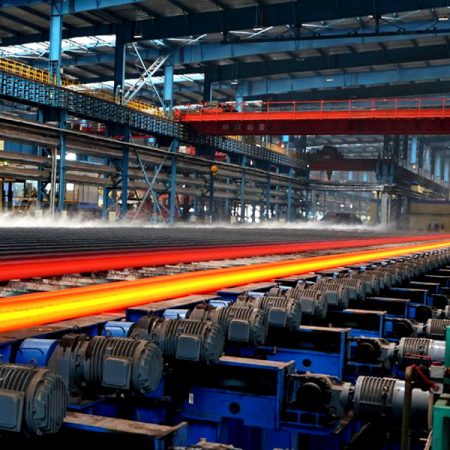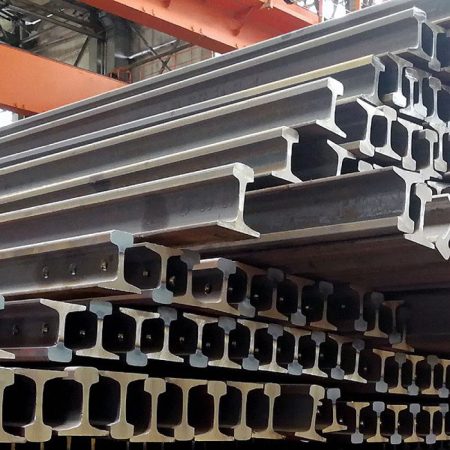DIN536 A65 crane rail is a type of crane rail used in overhead cranes and monorail systems. It is made of high-strength steel with a minimum yield strength of 880 MPa, and is designed to withstand heavy loads and provide long-lasting durability, making it suitable for heavy-duty crane applications where high load capacities and durability are required. The rail shape and dimensions are designed to provide optimal support and guidance for the crane trolley and load, while the material properties ensure that the rail can withstand the stresses and loads associated with crane operation.
DIN536 A65 crane rail is widely used in many countries around the world, including Middleeast, Austria, Southeast, and South America countries. It is also used in other countries where the DIN standard is recognized and adopted. The crane rail is designed to meet the high safety and performance standards required in the crane industry, making it a popular choice for a wide range of applications.
DIN536 A65 crane rail is commonly used in industrial and manufacturing facilities, warehouses, and other areas where overhead cranes and monorail systems are used to move heavy loads. It is used in a variety of industries, including steel mills, automotive manufacturing, aerospace, and construction. The rail is designed to provide optimal support and guidance for the crane trolley and load, ensuring safe and efficient operation.
The installation of DIN536 A65 crane rail typically involves the following steps:
- Site preparation: The installation site must be prepared to ensure a level and stable surface. This may involve pouring a concrete foundation or using a support structure to hold the rail in place.
- Rail layout: The rail layout must be carefully planned to ensure that the rail is installed in the correct position and orientation. This may involve using a transit level or other surveying equipment to ensure that the rail is installed at the correct height and angle.
- Rail installation: The rail is installed using a crane or other lifting equipment. The rail must be carefully positioned and secured in place to ensure that it is level and stable.
- Rail testing: After the rail is installed, it must be tested to ensure that it meets the necessary safety and performance standards. This may involve using a load testing machine to test the rail’s load-bearing capacity, or using a transit level to ensure that the rail is level and stable.
It is important to follow the manufacturer’s installation instructions and safety guidelines when installing DIN536 A65 crane rail. It is also recommended to consult with a professional engineer or crane expert to ensure that the installation is done correctly and safely.
We can supply the international standard flat bottom rails as below:
If you need anyone, please feel free to contact us.






